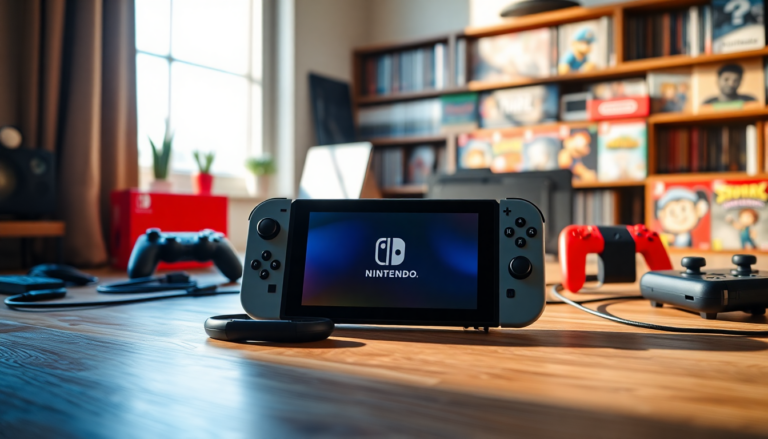Argomenti trattati
Nintendo has recently made waves in the gaming community with its updated online user agreement, just ahead of the much-anticipated Switch 2 launch. As avid gamers, we have to take a closer look at what this means for us. The new terms hint at a stricter approach toward console usage and modifications, leaving many to wonder: how will this affect our gaming experiences and rights as consumers?
Understanding the new user agreement
For those who haven’t yet skimmed through the fine print, Nintendo’s revamped End User License Agreement (EULA) introduces some eye-catching changes. The most alarming aspect is the bold claim that your Nintendo device could be rendered “permanently unusable” if the company deems you in violation of the agreement. This is a significant shift from the EULA of 2021, which was far less intimidating.
The specific wording now emphasizes that failure to comply could lead to the suspension of your Nintendo Account Services and possibly your console itself. This raises eyebrows, especially for those who enjoy modifying their devices or engaging in practices like ROM extraction. The restrictions seem to tighten the noose on creative freedoms that many gamers have come to value.
Previously, the agreement allowed for some flexibility, such as stating that modifications could be “expressly permitted by applicable law.” In contrast, the new terms appear to be more draconian, essentially banning all forms of game and hardware modding. As a consumer, this feels like a step backward at a time when technology should be enabling more freedom, not less.
The implications for console ownership
What does it mean for gamers who forked out hundreds of dollars for their consoles? The message is clear: while you might own the hardware, Nintendo seems to imply that your rights to modify or fully utilize it are limited. The update raises questions about ownership versus licensing. We’re essentially being told we don’t own the games we purchase outright; instead, we have a license to use them under very strict conditions.
This situation becomes even more concerning when you consider the potential for false positives in enforcement. Nintendo’s reputation for being heavy-handed could lead to legitimate users facing penalties for actions that might be misinterpreted as violations. Imagine spending a significant amount on a console, only to have it disabled because of a misunderstanding regarding your usage.
Moreover, the fear of losing access to your console or games could discourage gamers from exploring their devices’ full potential. The gaming community thrives on creativity, and these restrictions could stifle innovation and discourage users from engaging with their consoles in more meaningful ways.
Why modifications matter to gamers
There are many legitimate reasons why gamers might wish to modify their consoles. For instance, some original Switch titles run better on PC emulators than on the actual hardware. As technology evolves, players seek out ways to enhance their gaming experiences, and modifications are often a part of that journey. The Switch 2’s backward compatibility may not fully meet the expectations of gamers eager for a seamless experience with their favorite titles.
Furthermore, the discontinuation of proprietary online services—something we’ve witnessed with older platforms like the 3DS and Wii U—raises concerns. As service support dwindles, modifications could be the only way to ensure that devices remain functional and relevant in the long term. This paints a picture of a future where users feel the need to jailbreak their devices simply to maintain access to their games.
Nintendo’s control over its ecosystem
The tightening grip of Nintendo over its ecosystem also raises questions about the company’s motives. By consolidating control, they aim to protect their intellectual property, but this can come at the cost of consumer satisfaction. The subscription-based model for accessing classic games is another layer of this issue, leaving many feeling frustrated at having to pay repeatedly for content they could previously access freely.
Moreover, as competitors like PC handhelds and other consoles rise in popularity, Nintendo’s heavy-handed approach could alienate loyal fans. Gamers are increasingly looking for platforms where they can express their creativity and enjoy a more open environment. The fear is that Nintendo’s policies will push users toward alternatives that offer more flexibility, ultimately impacting sales and brand loyalty.
Looking ahead
As we anticipate the arrival of the Switch 2, it’s crucial for us as gamers to remain informed and vocal about these changes. The updated EULA reflects a broader trend in the gaming industry that favors corporate control over consumer rights. We must advocate for fair treatment and ensure that our voices are heard in this conversation.
It’s a complex landscape we navigate as gamers today. Balancing the desire for innovation and freedom with the realities of corporate restrictions is no easy task. The hope is that as the gaming community grows and evolves, companies like Nintendo will reconsider their approach, allowing for a more open and inviting gaming environment for everyone.
As we move forward, let’s keep the conversation going. What do you think about Nintendo’s new EULA? How do you feel about the implications for your gaming experience? Share your thoughts and join the dialogue!

